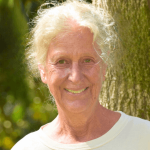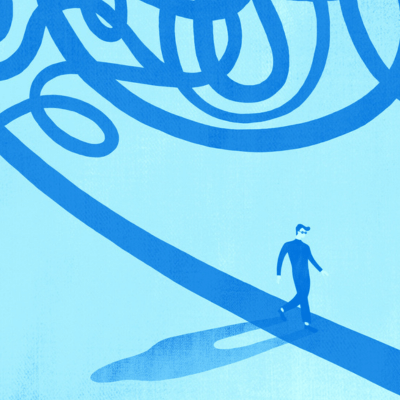Self-Compassion as a New Curricular Subject for Life

[Editor’s Note: Here on our blog, MCN’s Director of Witness to Witness, Kaethe Weingarten, PhD, shares stories, resources, and helpful tips to support health care workers through the many stressors of their daily lives.. Dr. Weingarten also offers a newsletter, filled with resources, recent articles, and her news and views. Sign up for the newsletter and grab bilingual resources on the Witness to Witness webpage.]
I don’t know what research study could affirm or deny this proposition, but what if it were true that what all humans have most in common is our vulnerability? What might change in our relationships to ourselves, our family members, our colleagues, our community, and with strangers if we took as a given that each of us is vulnerable? What might change if we accepted easily that we know it is true about ourselves and we know it to be true for everyone else, too?
It seems to me that the best response to vulnerability in ourselves and others is kindness, and yet kindness is often not the first response to the awareness of our vulnerability or the vulnerability of others. Of course, there are many kinds of vulnerability born out of varying circumstances. There is the vulnerability of illness and that of economic peril. There is the vulnerability of marginalization and that of tragic loss. To be sure, these produce different experiences. Yet, it does seem to me that one type of response makes more sense than any other and that is a response of kindness to this ubiquitous and unifying feature of life. What is more, what if this were considered a skill one could learn on a par with math or swimming? One would need lessons, to be sure, but it could be part of any school’s curriculum.
We know that teenagers, health care workers, athletes – to name a few groups – all compare themselves to others and often judge those comparisons negatively. With regard to teens and young adults, girls are particularly vulnerable to the social comparison that social media, accessed via smartphones, enables. (Jon Haigt and colleagues write convincingly on the impact of social media on girls in particular, here, here, and here.) Studies of physicians raise concern about the role of perfectionism in the culture of medicine. While perfectionism obviously confers important benefits, such as the insistence on high standards, it can also lead to self-doubt and anxiety, accompanied by ideas that one has not “done enough” or as well as colleagues would have in a comparable situation. Recent articles like this one have speculated about the role of perfectionism and invidious comparison in physician burnout.
For reasons like the above, I think a new subject could be usefully added to the standard curriculum, whether in elementary, middle, or high school, university, or professional school. The core of that curriculum would be setting forth the value of kindness to self and others and building the skill of self-compassion. Self-compassion can be an antidote to a critical inner voice that deludes us into believing ourselves to be deeply and persistently unworthy.
What is self-compassion? At the simplest level it is applying compassion to oneself. It is offering ourselves the gentle, nurturing kindness we would extend to a friend who is suffering or the supportive, loving care our parents provided, if we were so fortunate. Perhaps, even, it is the kind of self-talk we already do when we challenge a harsh, inner voice we become aware of.
Many people are aware that they have an inner voice that talks to them. Some people have an inner voice that is critical and harshly judgmental. It can take practice to notice an inner voice – whether it is harsh or supportive – because for so many of us it is just the running background soundtrack of our inner lives. We are fully accustomed to it. Some situations make it easier to recognize it than others. I used to hear my inner voice tell me my sentences were awful when I would write a term paper. I have a grandchild who hears a critical inner voice when she draws. Others tell of voices that mock them while they are rock climbing, out on a date, or behind in their medical chart notes. Some inner voices are relentless critics and rarely say anything good about their host.
Self-compassion takes time to develop. I believe it is a skill that can be learned by practicing it. First, one can take a survey to see how one scores on questions that measure self-compassion. There are surveys for ages 10-14, teens and adults. These surveys have been translated into as many as 20 languages. Next, there are books and workbooks on how to develop self-compassion. I recommend a workbook by Dr. Kristen Neff and Christopher Germer that provides wonderfully structured exercises to help develop self-compassion.
I also recommend a simple exercise that is practical, efficient, and can easily be learned by youth as well as adults: R.A.I.N. The exercise was developed by Michelle McDonald, but I have learned the most about it from Tara Brach, an American psychologist and the guiding teacher of the Insight Meditation Community of Washington, D.C. The four letters stand for four practices:
Recognize what is going on;
Allow the experience to be there, just as it is;
Investigate with interest and care;
Nurture with self-compassion.
There are many useful descriptions of this practice, some written and some videos, and some are available in Spanish. I used the practice yesterday, so I will re-create what my thought process was. I was at a concert and found that my mind was wandering rather than focusing on the two musicians and the piece of music I had so been looking forward to hearing. My inner voice began scolding me. I caught it and stopped it, the “R.” Then, I just allowed all my thoughts to be there, the mind-wandering as well as the judging thoughts. Next, I investigated by asking myself what was going on in the broader context of my life that could account for my difficulty concentrating solely on the music. I realized that lots was happening that of course could grab my attention. I then relaxed and told myself to just let whatever degree of focus or non-focus be fine. This allowed me to enjoy the music when I fully tuned into it and not feel critical of myself when I realized my attention had wandered elsewhere. I thoroughly enjoyed the concert.
Certainly, enjoying myself at a concert is not high stakes. But I am also a psychologist. I have had patients during clinical sessions get angry at me for not helping them enough with their suffering. I have had parents tell me that my advice hasn’t helped them in dealing with a challenging child. Those are times I have had to take stock. Could I have done more or better? If my answer was not a reflexive, “of course!,” but a thoughtful appraisal, and if I believe I have done my best, then it is useful to say to myself what I would say to my best friend: “Hey! Slow down. You have done what you could. You have cared and you have tried. Beating yourself up won’t make anyone’s life better.” Then, I may use the R.A.I.N. practice.
I think that self-compassion should be part of everyone’s inner life repertoire. I think that even young children can be taught it, but certainly children in middle school and older can. And imagine what our world would be like if everyone was skillful at self-compassion! That is a world I think we would all want to live in.
- Log in to post comments






